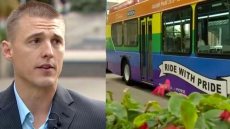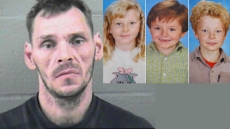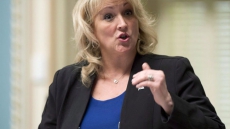HALIFAX — Youssef Aasar says he dreams of his family being reunited one day around the small dining table in his Halifax apartment, coming together after their flight from violence and corruption in Syria.
"All I really search for (is) a place in this world to meet my kids, to be safe, to live together, to eat together, to be in one house," the 43-year-old said during an interview at his two-room home.
Youssef arrived in Nova Scotia this spring, bringing his 39-year-old wife Alya, 13-year-old daughter Danah and four-year-old son Yaqub from Kuwait, where the Syrian man has lived since the 1990s.
His son Gazy, 18, and daughter Shashad, 22, from a previous marriage, and his parents Issa and Souad Aasar remain in Lebanon, after he paid for them to move from war-torn Homs in 2012.
Youssef's story differs from the stories of refugees trying to escape through Turkey and Greece. It started more than a decade ago with an encounter with a Syrian embassy official in Kuwait City and worrying visits by the Syrian security police to his parents' home.
He says he moved from his hometown of Homs in his 20s to work in a Kuwaiti agency that assisted migrants applying for work permits.
In the late 1990s, he says a Syrian embassy official falsely accused him of illegally taking a man's documents.
When Youssef lost his own passport, the same official accused him of selling it and Youssef accuses the man of asking for a bribe before providing fresh documents.
Later, Youssef says his father told him the police had started visiting his parents' and their neighbour's homes demanding information.
Being on the security forces' radar over the false accusation regarding his passport made returning home dangerous, he says.
"How would I know what would happen? I have to be afraid," he said. "They put you in jail and how can I prove I am innocent?"
Youssef remained in Kuwait, finding his separation from his original children and parents increasingly painful.
"They say to me, 'Do you miss us?' and I told them there is no single day in my life I don't think of them before I go to sleep at night," he said.
While in Kuwait, he frequently passed the Canadian embassy and started to dream of visiting Canada.
As the Syrian civil war spread in 2011, he came to Canada with Alya, who was pregnant at the time. Their son Yaqub was born and became a Canadian citizen.
Youssef returned to Kuwait and discovered about a year later the little boy had severe autism and suffers seizures. He says he struggled to both work and care for Yaqub in the years that followed, and his finances were soon drained. Meanwhile, he said, Kuwait has indicated it will not renew his work visa.
Danah, his 13-year-old daughter, hopes Canadians will welcome her.
"I feel I don't belong anywhere ... I hope for a better life and somewhere I belong," she said.
Youssef was scheduled to make his formal refugee application to Citizenship and Immigration Canada on Tuesday, which will determine if he can proceed to the next stage of the process.
Julie Chamagne, director of the Halifax refugee clinic, says her centre will provide free legal advice to the family as they attempt to settle in the province.
"Refugee situations are complex and there's not one kind of refugee. You can see by Youssef's history that some people find one moment they are very wealthy and the next moment they're not. One moment they have status somewhere and the next they don't," she said.





